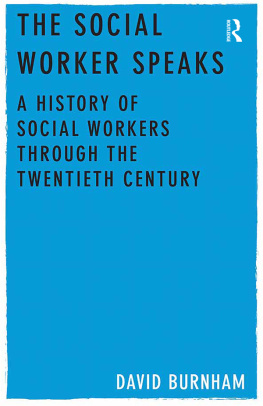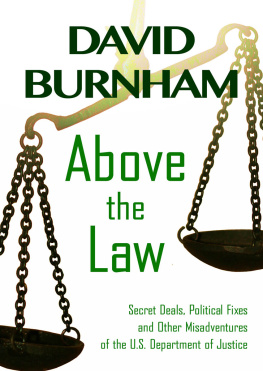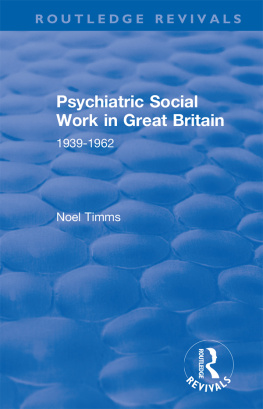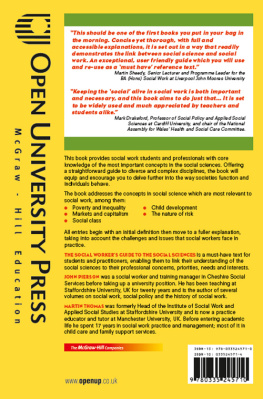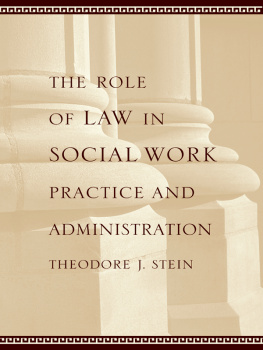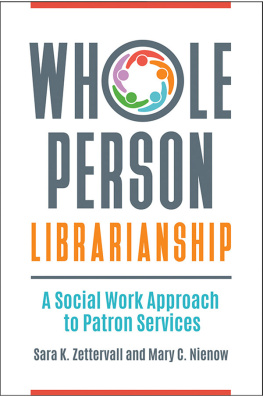First published 2012 by Ashgate Publishing
Published 2016 by Routledge
2 Park Square, Milton Park, Abingdon, Oxon OX14 4RN
711 Third Avenue, New York, NY 10017, USA
Routledge is an imprint of the Taylor & Francis Group, an informa business
Copyright David Burnham 2012
David Burnham has asserted his right under the Copyright, Designs and Patents Act, 1988, to be identified as the author of this work.
All rights reserved. No part of this book may be reprinted or reproduced or utilised in any form or by any electronic, mechanical, or other means, now known or hereafter invented, including photocopying and recording, or in any information storage or retrieval system, without permission in writing from the publishers.
Notice:
Product or corporate names may be trademarks or registered trademarks, and are used only for identification and explanation without intent to infringe.
British Library Cataloguing in Publication Data
Burnham, David.
The social worker speaks: a history of social workers through the twentieth century.
1. Social workers Great Britain Attitudes History 20th century. 2. Social case work Great Britain -History 20th century. I. Title
361.3209410904-dc23
Library of Congress Cataloging-in-Publication Data
Burnham, David Michael.
The social worker speaks: a history of social workers through the twentieth century / by David Michael Burnham.
p. cm.
Includes bibliographical references and index.
ISBN 978-1-4094-3638-6 (hbk)1. Social workersGreat BritainHistory20th century. 2. Social serviceGreat BritainHistory20th century. I. Title.
HV40.8.G7B87 2012
361.309410904dc23
2012029489
ISBN 9781409436386 (hbk)
Acknowledgements
No book is created by one person alone and many have helped produce this one. People have responded to calls for help, but others have helped inadvertently just by being themselves and saying what they thought. But Ill start by thanking people I never met: some of whom died before I was born; the people who set me onto this task Mary Haslam, Alice Kearsley, William Payne, Cyril Bustin, Jo Harris and Walter Watkinson among others people whose example is still an example decades after they did their work.
My primary thanks are to those who agreed to be interviewed for the book and this includes the many who agreed, but who, for various reasons, I did not interview. I ran out of time and also realised once I had interviewed over forty people that I was getting close to the amount of material I could reasonably handle; but thanks again to Annie Hollows, Ros Thorpe, Malcolm Jordan, Keith Bilton, David Jones, Olive Hammersley, Helen Bramley Burgess, Hilary Mercer, Sheila Whipp, Chris Gardner, Don Rowbottom and Joe Slater.
Thank you too to the people I interviewed who practiced in the 1940s and 1950s: Nora Cooper, Mary Mason, Barbara Totton (who I only met through her daughter Julia Pither) and Brian Fox. I am grateful too to the representatives of the next generation: Joyce Rimmer, helpful in so many ways, Marian Penny, Hilary (Clare) Makepeace, Maurice Ffelan and his eye for detail, Marie McNay, Isobel Groves, Peter Hewitt, Keith Hiscock, Hilary Corrick, Sheila Ives, Jack Preston, Ron Standring, Mary Hartley and Val Burnham.
Representatives from the generation which started out in the 1970s include David Custance, Carol Clark, John Dunkerley and Dinah Dunkerley, Lynn Baxter, Amanda Brown, Judith Niechcial who has been immensely supportive, Jennie Polyblank, Hannah McCarthy, Wendy Leach, Nirmal Singh, Sue Moya, Howard Syddall and Tom Daniels.
Penny Hindle, Eileen Gallagher, Julia Pither, Wyn Haslam, Elizabeth Mannion, Brenda Ryan and Heather Cameron represent the youngest generation of social workers I interviewed. They are thanked for their openness, despite the vague pressure on them of still working with or close by the organisations where they gained their formative experiences as social workers. In fact candour was a universal feature in the responses of the people I interviewed. As pleased as I was by this, it did necessitate careful subsequent consideration of the text with all the interviewees to ensure the appropriateness of what was included in the final text. Necessary as this has been it has imposed a further burden on those I interviewed which I recognise and for which I thank them.
Ian McHugh, Dave Seaber, Michael Murphy and Ciaran Rafferty have helped immensely over the years as has Stirling Smith, unusual in an Anglican as he sometimes played the role of Devils Advocate. Barbara Lewis and Peter Shorrock both helped as did Kev and Irene Lynn and I am indebted to Don Rowbottom for his forgiveness when I left his precious copies of Case Con on a train. Howard Davies returned to me material from a course he and I had both been on the 1980s, as well as a copy of Probe, which stimulated further thinking.
Michael Stewart and Brenda Mallon gave up their time to talk to me as did Robin Hobbes, who is forgiven for the brutal cycle training. Alan Calvert, Kathy Brown, Ted Perry, Ciaran Rafferty and Dawn Butterfield all read sections of the draft for which I am grateful, and many others have been encouraging: Joan Rapaport, Patsie Law, Viv Cree and Michael Burt as well as all those who, when told of the project, said Oh, what a good idea. Ruth Mills was very generous with photographs of her father Cyril Bustin and Shirley Malin, Milo Drury, Robert Lake, Annie Skinner, Edwin Coope and Paul Wilding all opened up new avenues of enquiry. Clare Barker and Harry Venning gave and continue to give constant inspiration.
Thanks too to the British Library unsurpassed in the efficiency of its catalogue, helpful staff and the delightful oak finished environment. But why not have more pencils? I also sought help from York Library, the archive in Bury Library, St Bartholemews Hospital Archive in London, Birmingham Library Archive, Manchester University Library and Lancashire Archive in Preston, where special thanks are due to Jacquie Crosby. I would also like to thank Joyce Rimmer for allowing me access to her extraordinary collection of social work literature. I have made considerable use of material in Bolton History Centre from the collections of Bolton Library and Museum Service, whose copyright I acknowledge. The people working at Bolton History Centre have been constantly helpful over the several years it has taken me to gather material so thanks are due to them, and their pencils, and to Caroline Furey for being so accommodating. And my life as a researcher has been much eased by the availability of the services of Amazon, Wikipedia and Ancestry.com. Finally I owe a great deal to Kirstie Clegg for her cool, orderly and reassuring organisation of the final stages of the project.
And Linda Drury has been there, as ever, interested and calm, offering constant support and advice.

